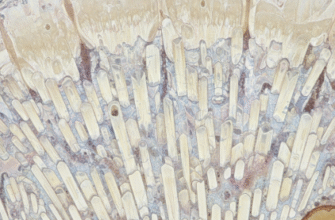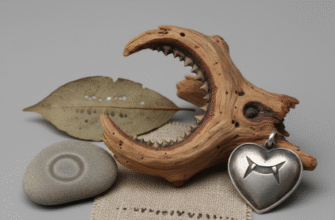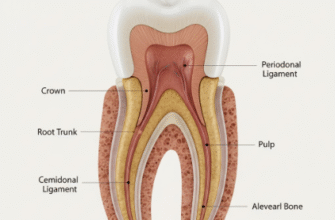It’s fascinating how something as seemingly simple as the state of our mouth can echo so profoundly through our lives, touching everything from our daily interactions to our deepest sense of self. We often think of oral health in purely functional terms – chewing food, maybe avoiding a toothache. But its roots run much deeper, entwined with cultural identity, social standing, and an overarching sense of well-being that often goes unacknowledged until something feels amiss.
Consider the smile, a universal language, yet its aesthetic ideals can vary wildly from one culture to another. What constitutes a “beautiful” smile isn’t a fixed concept; it’s shaped by tradition, media, and societal values. Beyond aesthetics, the mouth is our primary tool for verbal communication, for expressing joy, concern, and a thousand other emotions. The confidence to speak freely, to laugh without reservation, is intrinsically linked to how we feel about our oral presentation.
The Mouth as a Gateway: Beyond Just Eating
The mouth, then, is far more than a mere entry point for sustenance. It’s a dynamic gateway for expression, connection, and the very first impressions we make. Think about it: a confident greeting, a shared laugh, a heartfelt conversation – all are mediated through our oral health. The ease with which we engage in these fundamental human experiences can be subtly, or sometimes overtly, influenced by the comfort and condition of our mouths. This isn’t just about the absence of pain; it’s about the presence of confidence.
Across diverse cultures, while the specifics may differ, the mouth often holds symbolic significance. It can represent purity, eloquence, or even status. The effort a culture invests in oral care traditions, whether ancient or modern, speaks volumes about the value placed on these aspects of life. It’s a silent testament to the understanding that a healthy mouth contributes to a more wholesome and engaged existence.
Historical Echoes: Oral Care Traditions Across Cultures
Delving into history reveals a rich tapestry of oral care practices, underscoring how long humanity has recognized the importance of a healthy mouth. These traditions weren’t just about preventing discomfort; they were often interwoven with social rituals, spiritual beliefs, and a holistic view of health.
Ancient Practices: A Glimpse into Early Wisdom
Long before the advent of modern dentistry, societies developed ingenious methods for oral hygiene. In many parts of Africa, the Middle East, and South Asia, the miswak or chewing stick, derived from the Salvadora persica tree (or similar plants), has been used for centuries. Its natural bristles and antimicrobial properties were, and still are, highly valued. This wasn’t a haphazard practice; specific techniques and even times for its use were often prescribed, highlighting a structured approach to oral care.
Ancient Egyptians, renowned for their advanced understanding of medicine for their time, also paid attention to oral conditions. Archeological findings include rudimentary tooth-filling attempts and prescriptions for gum ailments. Similarly, ancient Chinese texts describe various remedies for oral issues, often involving herbs and specific dietary recommendations. These early efforts demonstrate a fundamental human concern for oral well-being, driven by a desire for comfort, function, and perhaps even social acceptance.
Traditional Remedies and Beliefs: Nature’s Pharmacy
Beyond specific tools like chewing sticks, many cultures developed a wealth of knowledge around herbal rinses and preparations to maintain oral health. Ingredients like neem, clove, sage, and myrrh have been traditionally used for their cleansing and soothing properties. These weren’t just folk remedies; they were integral parts of community health systems, with knowledge passed down through generations.
Dietary customs also played a significant role. Some cultures traditionally emphasized coarse, fibrous foods that naturally helped clean teeth, while others might have specific prohibitions or recommendations related to foods believed to impact oral health. These practices often reflected a deep connection with the natural environment and an understanding, however intuitive, of how diet impacts the body, including the mouth.
Across many societies, a clean mouth and fresh breath are not merely personal hygiene goals but are deeply embedded in social etiquette and respect. This reflects a cultural understanding that oral presentation significantly impacts interpersonal relationships and self-esteem. Such practices, passed down through generations, underscore the mouth’s symbolic role in social acceptance and an individual’s contribution to a pleasant communal atmosphere. These traditions highlight a connection between personal care and broader social harmony.
Social Fabric: Oral Health’s Role in Community and Connection
Our oral health doesn’t exist in a vacuum; it significantly influences how we connect with others and how we are perceived within our communities. A bright, comfortable smile can be an invitation, fostering open communication and approachability. Conversely, noticeable oral neglect can, in many cultural contexts, create unspoken barriers or lead to negative assumptions, however unfair.
The confidence to engage socially is often subtly tied to how we feel about our smile and breath. Imagine hesitating to laugh heartily or speak up in a group due to self-consciousness about one’s teeth. This isn’t vanity; it’s a reflection of the deep-seated human need for acceptance and positive interaction. In cultures where communal living and close social bonds are paramount, these aspects can take on even greater significance.
Furthermore, the act of sharing a meal is a cornerstone of social life in virtually every culture. It’s a time for bonding, celebration, and connection. Oral comfort is essential to fully participate in and enjoy these communal experiences. Discomfort while eating can lead to social withdrawal or an inability to partake in culturally significant foods, subtly isolating an individual from their community’s fabric. Therefore, cultural practices that promote oral health also indirectly support the cohesiveness and joy of these shared moments.
A Reflection of Overall Well-being: The Broader Connections
The state of our mouth often serves as a visible indicator of our general attention to self-care and, by extension, our overall well-being. While we must be careful not to make sweeping judgments, it’s often true that when someone is taking good care of themselves generally, their oral health benefits. Conversely, periods of stress or neglect in other areas of life can sometimes manifest in declining oral hygiene.
Beyond just appearance, persistent oral discomfort can cast a long shadow over daily life. Difficulty eating comfortably can impact nutritional intake. Lingering oral issues can disturb sleep patterns or make it hard to concentrate on work or studies. This isn’t about specific diseases, but rather the general impact that a less-than-healthy mouth can have on one’s ability to function optimally and enjoy life’s simple pleasures. It subtly erodes one’s sense of vitality.
Many traditional healing philosophies around the world embrace a holistic view of health, where the body is seen as an interconnected system. In such frameworks, the mouth isn’t treated in isolation. Its health is considered reflective of, and contributory to, the health of the entire being. This perspective encourages a more integrated approach to well-being, where caring for your mouth is an intrinsic part of caring for your whole self. It’s a nod to the idea that small, consistent acts of self-care, like maintaining oral hygiene, ripple outwards to support a larger sense of wellness.
Modern Perspectives: Evolving Cultural Attitudes
In our increasingly interconnected world, cultural attitudes towards oral health are constantly evolving. The global reach of media, particularly social media, has played a significant role in shaping, and sometimes standardizing, aesthetic ideals, including what is considered a “perfect” smile. This has led to a heightened awareness of cosmetic dental options in many parts of the world, sometimes overshadowing the more fundamental importance of oral health for function and comfort.
While awareness of the importance of oral hygiene has generally increased globally, access to modern dental care remains a significant challenge in many communities. This disparity means that while some populations have embraced advanced dental technologies, others continue to rely heavily on traditional practices, or unfortunately, may lack access to adequate care altogether. This highlights a complex interplay between cultural heritage, economic factors, and the availability of healthcare resources.
Interestingly, there’s also a growing movement towards integrating the best of both worlds: blending valuable traditional knowledge with the advancements of modern science. There’s an increasing appreciation for the wisdom embedded in age-old herbal remedies or dietary practices, especially when they can complement contemporary approaches to oral care. This holistic perspective acknowledges that different cultures have developed unique and effective strategies for maintaining well-being, and that there is much to learn from this collective human experience. The future may well lie in a respectful fusion of these diverse approaches, fostering a more inclusive and effective path to oral wellness for all.
Ultimately, the cultural significance of oral health is a testament to its integral role in our human experience. It’s about more than just teeth and gums; it’s about communication, confidence, community, and a fundamental sense of well-being. Recognizing and respecting the diverse cultural practices and beliefs surrounding oral care can enrich our understanding of health itself, reminding us that a healthy smile, in its broadest sense, truly contributes to a fuller life.








